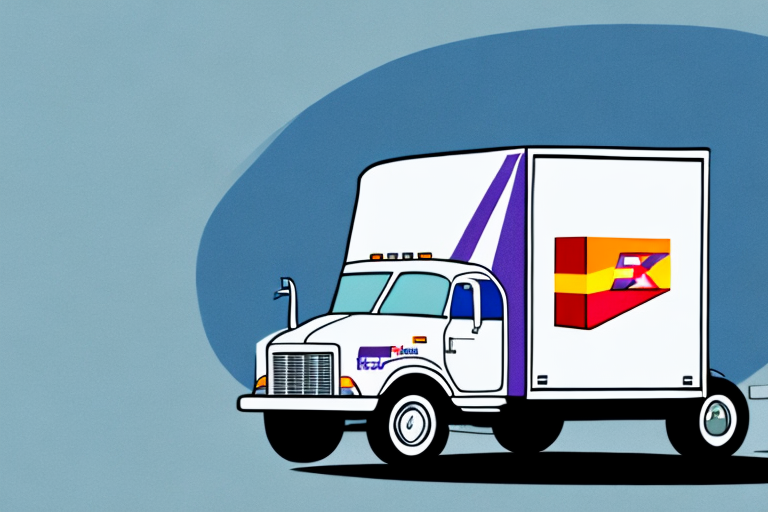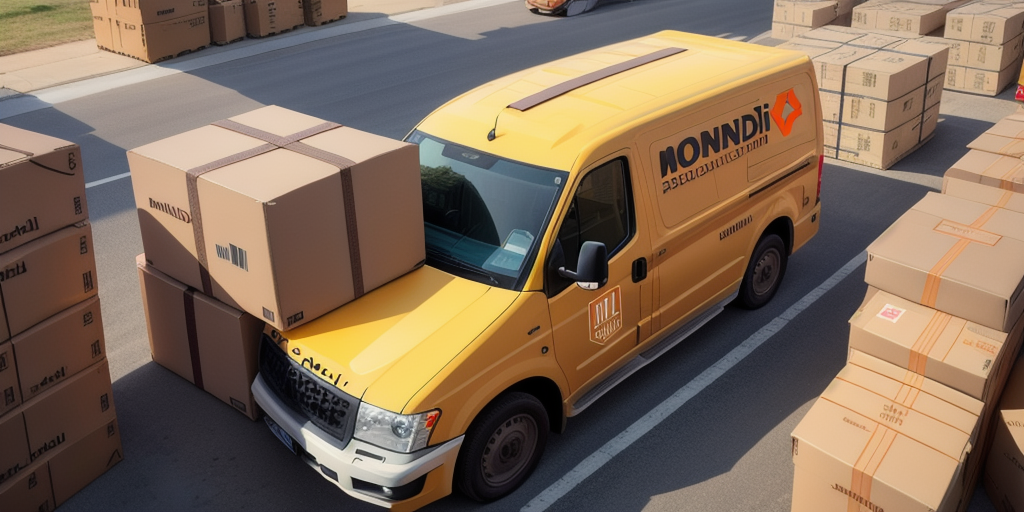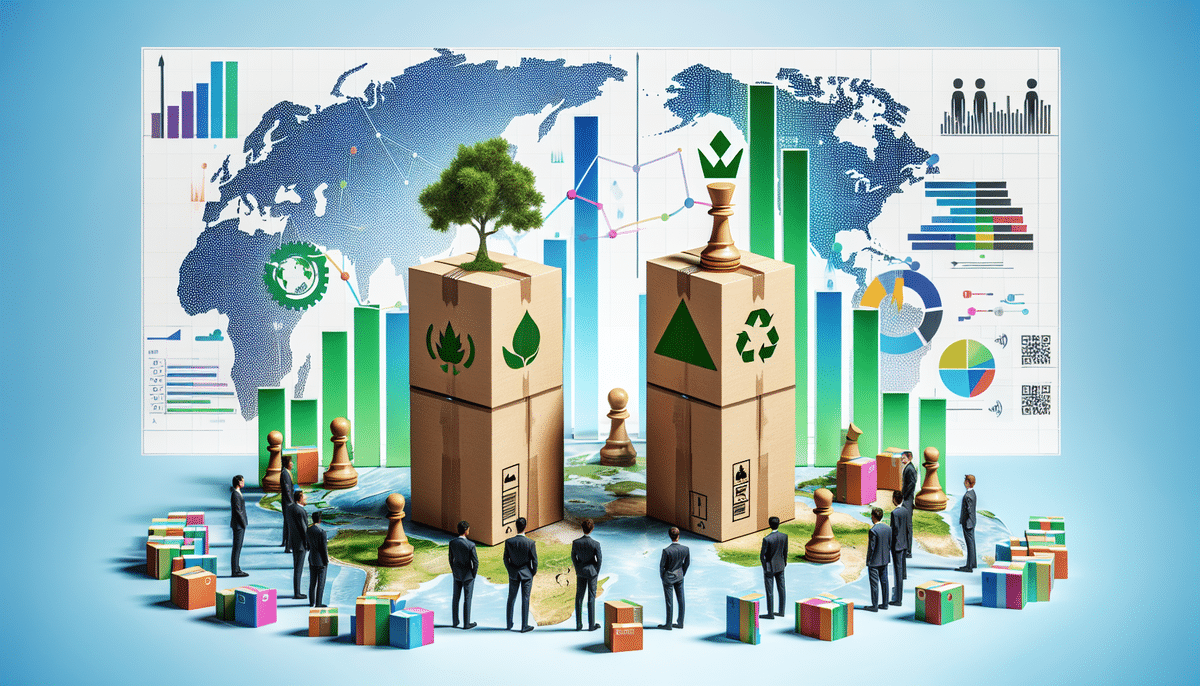FedEx Corporation, founded by Frederick W. Smith in 1971, has become one of the most successful companies in the world. Its business model is based on delivering packages worldwide, offering logistics, and courier services. The company's success is driven by several strategies, including innovation, strong branding, advanced technology, efficient logistics and distribution, partnerships, employee training and development, sustainability, and corporate responsibility. Let us take a closer look at each of these strategies and explore how they have contributed to the company's growth and success.
The History of FedEx: From a College Paper to a Global Corporation
FedEx started as an idea of its founder, Frederick W. Smith, who wrote a college paper on the need for an overnight delivery service. He believed that there was a gap in the market that needed to be filled: a service that would deliver packages overnight anywhere in the US. Smith turned that idea into reality, launching Federal Express in 1971.
Initially, the company faced many challenges, including financial difficulties and operational issues. However, Smith was determined to make the company a success and introduced innovative solutions to overcome these challenges. One such solution was the use of a hub-and-spoke system, which allowed packages to be sorted and delivered more efficiently.
Over the years, FedEx has expanded its services to include international shipping, ground delivery, and logistics solutions. Today, it is a global corporation with a presence in over 220 countries and territories. The company has also been recognized for its commitment to sustainability, with initiatives such as the use of alternative fuels and the implementation of eco-friendly packaging.
The Importance of Innovation in FedEx's Success
Innovation has been a cornerstone of FedEx's success. In 1981, FedEx introduced the first barcode scanner, which revolutionized the tracking and delivery of packages. In 1994, the company launched its website, offering online package tracking and enabling customers to print shipping labels from their computers. In recent years, FedEx has been investing in new technologies, including drones, autonomous vehicles, and robotics, to improve its delivery capabilities and enhance customer experience.
One of the key ways that FedEx has continued to innovate is through partnerships with other companies. For example, in 2019, FedEx partnered with Walmart to launch a pilot program for autonomous delivery of groceries. This partnership allowed FedEx to test its autonomous delivery technology in a real-world setting, while also providing Walmart with a new way to offer fast and convenient delivery to its customers.
Another area where FedEx has been focusing its innovation efforts is in sustainability. The company has set a goal to achieve carbon-neutral operations by 2040, and is investing in electric vehicles, renewable energy, and other initiatives to reduce its environmental impact. By prioritizing sustainability and innovation, FedEx is not only improving its own operations, but also contributing to a more sustainable future for the planet.
Building a Strong Brand: How FedEx Became Synonymous with Shipping
FedEx has built a strong brand that is recognized worldwide. The company's branding efforts have focused on creating a simple yet memorable logo, using distinctive colors, and leveraging iconic advertising campaigns such as "The World on Time." As a result, FedEx has become synonymous with shipping and logistics, and its brand is highly valued in the market.
In addition to its branding efforts, FedEx has also invested heavily in technology and innovation to improve its shipping and logistics services. The company has developed advanced tracking systems, automated warehouses, and even experimented with drone deliveries. These technological advancements have not only improved the efficiency and speed of FedEx's services but have also helped to further solidify its position as a leader in the shipping industry.
The Role of Technology in FedEx's Competitive Edge
Technology has been a significant driver of FedEx's competitive edge. The company uses sophisticated systems to manage its operations, including tracking and monitoring packages, managing inventory, and routing deliveries. FedEx's use of technology has enabled the company to offer fast, reliable, and cost-effective services, which have helped it to differentiate itself from its competitors.
One of the key technologies that has helped FedEx maintain its competitive edge is its use of data analytics. By analyzing data on package delivery times, customer preferences, and other factors, FedEx is able to optimize its operations and improve its services. For example, the company can use data to identify the most efficient delivery routes, reducing delivery times and costs. Additionally, FedEx uses data to personalize its services, offering customized delivery options and tailored recommendations to customers based on their past behavior. This focus on data-driven insights has helped FedEx stay ahead of the curve in a rapidly evolving industry.
Efficient Logistics: How FedEx Revolutionized the Shipping Industry
FedEx's efficient logistics and distribution system is another reason for its success. The company's logistics system is designed to minimize delivery times and costs, using a combination of air, ground, and sea transportation. FedEx's advanced logistics capabilities enable it to deliver packages more quickly and efficiently than its competitors, which has helped to establish its market leadership.
One of the key components of FedEx's logistics system is its use of technology. The company has invested heavily in developing advanced tracking and monitoring systems that allow it to keep tabs on packages at every stage of the delivery process. This technology enables FedEx to quickly identify and resolve any issues that may arise during shipping, ensuring that packages are delivered on time and in good condition. Additionally, FedEx's use of automation and robotics in its warehouses and sorting facilities has helped to streamline its operations and reduce costs, further enhancing its efficiency and competitiveness in the shipping industry.
The Power of Collaboration: How FedEx Partnerships Helped Expand Its Reach
FedEx's strategic partnerships have played a vital role in the company's growth. The company has partnered with major global brands, such as Nike, Dell, and Walmart, to offer customized logistics solutions. These partnerships have helped to expand the company's reach, offering new business opportunities and creating additional revenue streams.
One notable example of FedEx's successful partnership is with the online retail giant, Amazon. In 2018, FedEx announced a new partnership with Amazon to provide delivery services for the company's packages. This partnership has allowed FedEx to tap into Amazon's vast customer base and expand its reach in the e-commerce market. Additionally, the partnership has helped Amazon to diversify its delivery options and reduce its reliance on other carriers.
The Impact of Employee Training and Development on FedEx's Success
FedEx places a strong emphasis on employee training and development. The company believes that investing in its employees' training and development is essential to its success, as it enables the company to offer high-quality services and improve customer experience. FedEx invests in employee training programs, such as the Purple Promise program, which focuses on customer service and professionalism.
Moreover, employee training and development at FedEx also helps to improve employee retention rates. By providing opportunities for career growth and development, employees are more likely to stay with the company long-term. This reduces turnover rates and the costs associated with hiring and training new employees.
Additionally, employee training and development at FedEx is not limited to technical skills. The company also offers training on soft skills, such as communication, teamwork, and leadership. This helps to create a positive work environment and fosters a culture of continuous learning and improvement.
Sustainability and Corporate Responsibility: How FedEx is Making a Difference
FedEx is committed to sustainability and corporate responsibility. The company has set ambitious sustainability goals, including reducing its carbon footprint and investing in alternative fuel vehicles. FedEx is also involved in various social responsibility initiatives, such as disaster relief efforts and community outreach programs, demonstrating its commitment to making a positive impact on society.
In addition to its sustainability and social responsibility efforts, FedEx is also committed to promoting diversity and inclusion within its workforce. The company has implemented various programs and initiatives to ensure that all employees feel valued and respected, regardless of their background or identity. This includes offering training and development opportunities, as well as creating employee resource groups to support underrepresented communities.
Furthermore, FedEx is dedicated to ethical business practices and transparency. The company has established a code of conduct that outlines its commitment to integrity, honesty, and fairness in all aspects of its operations. FedEx also regularly publishes sustainability reports to provide stakeholders with information on its progress towards its sustainability goals and initiatives.
Overcoming Challenges: A Look at How FedEx Adapted to Economic Downturns
FedEx has faced several challenges over the years, including economic downturns, intense competition, and disruptive technologies. However, the company has shown great resilience in adapting its business strategy to overcome these challenges. In response to the 2008 financial crisis, for example, FedEx implemented cost-cutting measures, streamlined its operations, and diversified its business portfolio to minimize risk.
Another challenge that FedEx faced was the rise of e-commerce and the shift towards online shopping. To address this, the company invested heavily in its e-commerce capabilities, including expanding its ground network and developing new technologies to improve delivery times and customer experience. Additionally, FedEx has partnered with retailers to offer innovative solutions such as in-store pickup and same-day delivery options.
Future Strategies: What Lies Ahead for FedEx in the Evolving Shipping Industry?
The shipping industry is constantly evolving, and FedEx is well-prepared to adapt to future challenges. The company's future strategies include expanding its e-commerce capabilities, using new technologies to enhance delivery services, and continuing to invest in employee training and development. FedEx is also committed to sustainability and corporate responsibility, and will continue to focus on reducing its environmental impact and making a positive contribution to society.
Competitor Analysis: Comparing FedEx's Strategies with Other Major Players in the Market
FedEx faces intense competition from other major players in the shipping industry, such as DHL and UPS. To maintain its market leadership, FedEx must continue to innovate, differentiate itself from its competitors, and offer excellent customer service. FedEx's advanced logistics and distribution system, use of technology, and strong brand have helped it to establish a competitive edge.
Customer Service Excellence: How FedEx Prioritizes Its Customers' Needs
Customer service excellence is at the heart of FedEx's business strategy. The company places a strong emphasis on meeting its customers' needs, offering customized solutions, and providing fast and reliable services. FedEx's commitment to customer service has helped it to build a loyal customer base, providing a reliable source of revenue and underpinning its market leadership.
In conclusion, FedEx's success is the result of a combination of innovative, customer-focused, and socially responsible strategies. The company's commitment to technology, logistics, branding, employee training and development, sustainability, partnerships, and customer service has enabled it to differentiate itself from competitors and establish a market leadership position. With its strong foundation and focus on the future, FedEx is positioned for continued success in the evolving shipping industry.






















